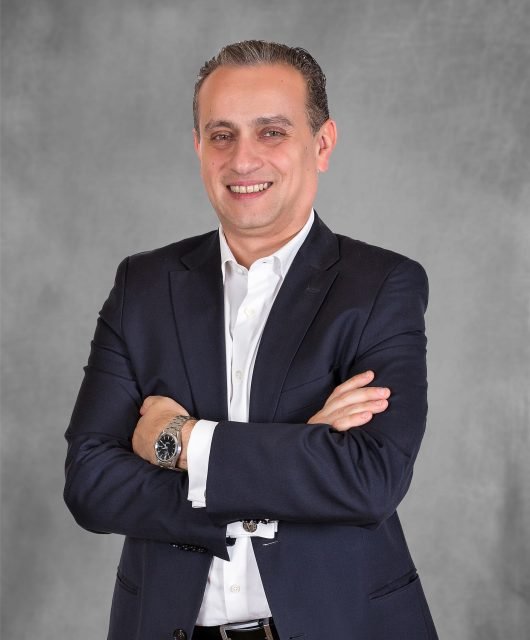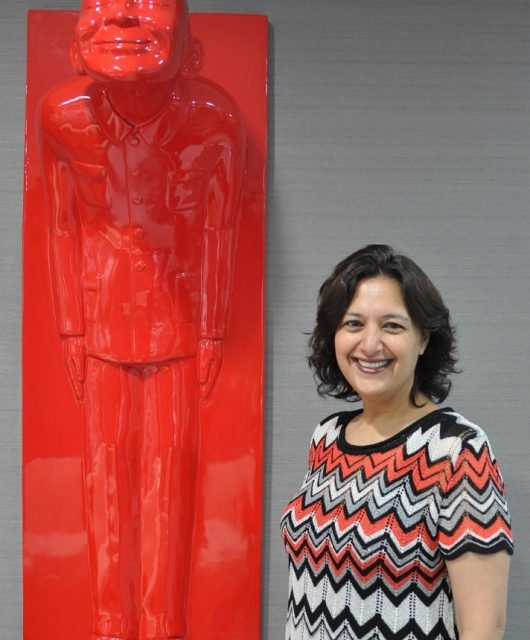Consumers tend to be more engaging with brands that humanize the relationship between themselves and their target audiences, hence, the need for sustainability activities for brands has been a crucial need. The Brandberries interviewed Louise Koch, Dell’s Corporate Sustainability Lead for Europe and MEA, to shed some light on Dell’s CSR Strategy.
 BB: In the past ten years, CSR has evolved to being one of the fundamental key pillars of any brand’s communication process. How did CSR help global brands establish thought leadership by advocating solutions for global issues?
BB: In the past ten years, CSR has evolved to being one of the fundamental key pillars of any brand’s communication process. How did CSR help global brands establish thought leadership by advocating solutions for global issues?
LK: We are all citizens of the world, and companies need to take responsibility to make sure they are playing a role in protecting that world for the future. Successful, innovative companies tend to aspire to a greater purpose that goes beyond the bottom line, and advocating for solutions to global issues is a powerful way to get your brand known for something more than a specific product or service and build an emotional connection with their customers.
BB: Has Dell’s CSR strategy been able to strengthen brand loyalty, engagement and emotional connection with its audience?
LK: Ultimately, companies and people want to buy from, and do business with, brands who are doing good. While that is a positive benefit of our 2020 Legacy of Good plan, it is not the core reason why we developed it. The idea that technology should support positive growth and change the world for the better is at the core of Dell’s identity. The impetus for this commitment is self-serving: intimately tied to the business, driving growth, helping mitigate risk and ensuring business opportunities by building our brand. Our company-wide strategy is based on creating shared value by bringing sustainability and social responsibility together with our business objectives to benefit customers and build a legacy of good.
BB: At the beginning 2016 CSR report, Dell’s CEO, Michael Dell has confirmed the commitment to deliver the goals of Dell’s 2020 “Legacy of Good” plan. How does Dell define its legacy of good?
LK: Dell’s 2020 Legacy of Good plan brings sustainability and social responsibility together with our business objectives to benefit customers while building a legacy of social and environmental good. The Legacy of Good plan outlines our path to the year 2020 through a set of goals that put our technology, time and expertise to use where they can do the most good for people and the planet.
BB: Dell’s CSR strategy is built on diversity and inclusion. What drives the CSR strategy of the company in local markets? Is it the localization of the global CSR strategy or a tailor-made strategy according to what each community requires?
LK: Our long term sustainability plan is organized by our three areas of focus: we take action to benefit the environment, strengthen our communities, and engage our people in a diverse and inclusive workforce. Ultimately, the notion of adding value in these areas flows directly from Dell’s purpose to enable people everywhere to grow and thrive and reach their full potential.
Most important, our plan includes 21 ambitious, strategic goals bound by an end date of 2020. Our 10×20 Goal is our most ambitious — making a positive impact that is ten times greater than the footprint of producing and using our technology. This aggregates the work and measures an outcome that stretches across many of our aspirations, helping demonstrate what is truly possible at the hands of our customers and partners — all of us working together.
With respect to how this is activated in local markets, while partnerships and activities may vary, they must all align to this global strategy and support the goals of our 2020 Legacy of Good.
For example, to support the communities pillar, in South Africa, there are nine solar-powered Dell Learning Labs. These labs bring technology-based learning to communities without reliable electricity by using solar power to enable energy
BB: In order to cut through the noise, brands have to get more sophisticated in their methodology. How can brands move from being socially responsible to being socially impactful?
LK: Measurement is essential to ensuring companies CSR activities are making an impact. To ensure we are being completely transparent, we report on our progress against our 21 ambitious, strategic goals every year, and therefor are able to quantify the very real impact of our CSR strategy. An example of this is our goal to reduce the energy intensity of our products by 80% by 2020. In terms of impact, this will mean our customers get more performance for less energy. This goal is recognized as a Science Based Target, which means that we are doing our part to support the United Nations Framework Convention on Climate Change Paris Agreement on limiting global temperature growth to maximum 2 degrees. And we are proud to announce that we are on target to meet this goal.
BB: Can you mention some of the most important and benchmarked milestones Dell has achieved in the past year that can give it a label of being a brand with “social impact”?
LK: Dell has successfully met its 2020 goal of incorporating 50 million pounds of recycled content in its products, this is three years ahead of schedule. The closed-loop and recycled carbon fiber programs have helped us exceed our expectations of the impact that we can have, and we’ll be establishing new ambitious 2020 and 2030 goals as we go forward.
We are equally committed to helping people thrive in the years ahead. Last year, our Youth Learning initiatives brought technology access and education to more than 415,000 underserved children around the world. A recent survey of our Youth Learning partners showed that roughly half of the children had never touched a computer before participating in one of our programs.
We entered our fifth year of partnership with the Translational Genomics Research Institute (TGen) in an effort to cure pediatric cancer and enable precision medicine. Enhancements to TGen’s Dell-designed high-performance computing solution yielded 50 percent faster genome processing speeds. That meant TGen could nearly double the number of pediatric cancer patients they serve.
Additionally, Dell employees volunteered a record 811,000 hours to the charities and causes they care about.
BB: In the Middle East, some of the leading brands, Coca-Cola on top of them, have experienced a backlash for over promising and under delivering. Is CSR an all-time receive for a powerful brand strategy? What other factors that can make CSR efforts backfire in the face of a brand?
LK: It’s critical that brands that develop a CSR plan recognize that by doing so they are making a real commitment. It cannot just be a ‘nice to do’ but an integral part of the company’s core values that everyone within the organization believes in and embodies every single day. It’s about authenticity. If your commitment to CSR isn’t real, people will see through that.





